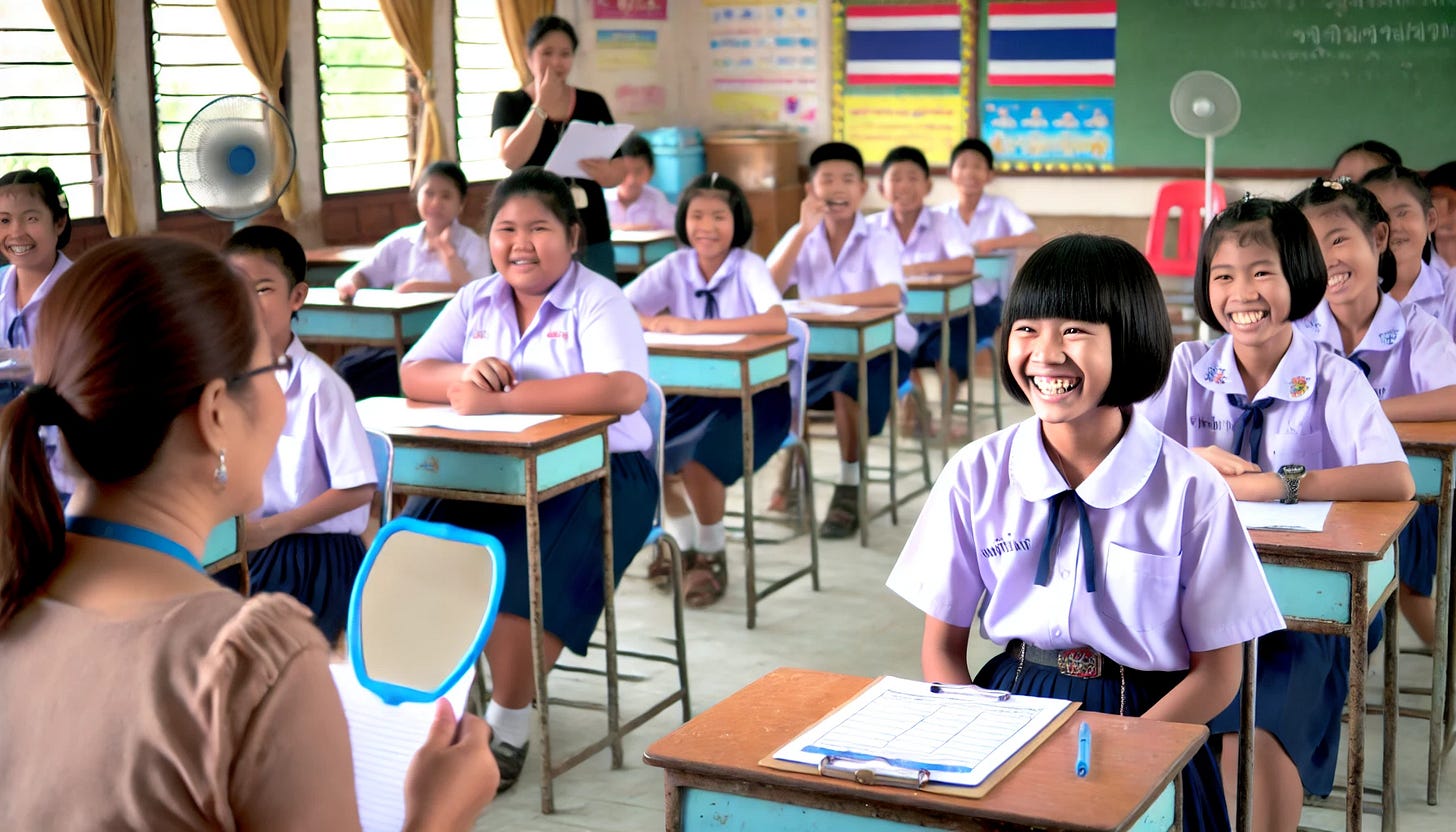Thai Schools Implement ‘Smile Exams’ to Ensure Students Maintain National Reputation
BANGKOK – Thailand's Ministry of Education has unveiled a new initiative aimed at bolstering the nation's image through an unconventional method: mandatory smile exams. Starting next semester, students across the country will be evaluated on their ability to maintain a cheerful demeanor, as part of a broader effort to preserve and enhance Thailand's reputation as the "Land of Smiles."
The "Smile Exams" are the brainchild of the Ministry of Education, which has emphasized the importance of preserving this cultural hallmark in an increasingly competitive global landscape.
"We believe that the ability to present oneself positively is crucial, not just for individual success but for the nation's reputation as a whole," said Somchai Anuwat, the Minister of Education, in a recent press conference. "The Smile Exams are designed to ensure that our future generations embody the spirit of Thailand, no matter where they go."
The exams, which will be introduced in primary and secondary schools nationwide, will assess students on a variety of criteria, including the sincerity of their smiles, the consistency of their cheerful expressions, and their ability to maintain a pleasant demeanor in different social situations.
To prepare students for these exams, schools will incorporate smile training into their regular curriculum. This will include sessions on facial muscle exercises, stress management techniques, and role-playing scenarios to practice maintaining a smile under pressure. Teachers will receive specialized training to help students master the art of the smile.
"We're not just teaching children to smile; we're teaching them the emotional intelligence behind it," explained Jintana Viriyaboot, a senior educator involved in developing the curriculum. "It's about fostering genuine positivity and resilience."
The assessment itself will be conducted by a panel of experts, including psychologists, educators, and professional actors known for their charismatic performances. Students will be evaluated in both individual and group settings, with scores given for various aspects of their smiling ability.
While some parents and educators have embraced the initiative, others have raised concerns about its implications.
"I think it's a wonderful idea," said Sukanya Thongchai, a mother of two elementary school students. "In today's world, being able to project positivity and friendliness can open many doors. It's a valuable skill."
However, critics argue that the Smile Exams place undue pressure on students and divert attention from more essential academic pursuits. "This is an absurd and superficial measure," said Pravit Kasemsuk, an education policy analyst. "Children should be encouraged to express their true emotions, not forced into artificial displays of happiness."
Mental health professionals have also voiced concerns, warning that the emphasis on constant smiling could lead to increased anxiety and emotional suppression among students. "It's important to recognize that children need to experience and express a full range of emotions," said Nareerat Chanthaboon, a child psychologist. "Forcing them to always appear happy could have detrimental effects on their mental health."
Despite the controversy, the Ministry of Education remains steadfast in its commitment to the Smile Exams, viewing them as a crucial element of Thailand's cultural preservation strategy. Officials argue that in a world where soft skills are increasingly valued, the ability to present oneself positively is more important than ever.
"We're preparing our students for a future where emotional intelligence and interpersonal skills are just as important as technical knowledge," said Minister Anuwat. "The Smile Exams are a step in that direction."
As Thailand embarks on this unique educational experiment, the world will be watching closely to see how the Smile Exams impact the nation's youth and its international image. Whether this initiative will be hailed as a visionary approach to cultural education or criticized as a misguided policy remains to be seen.



